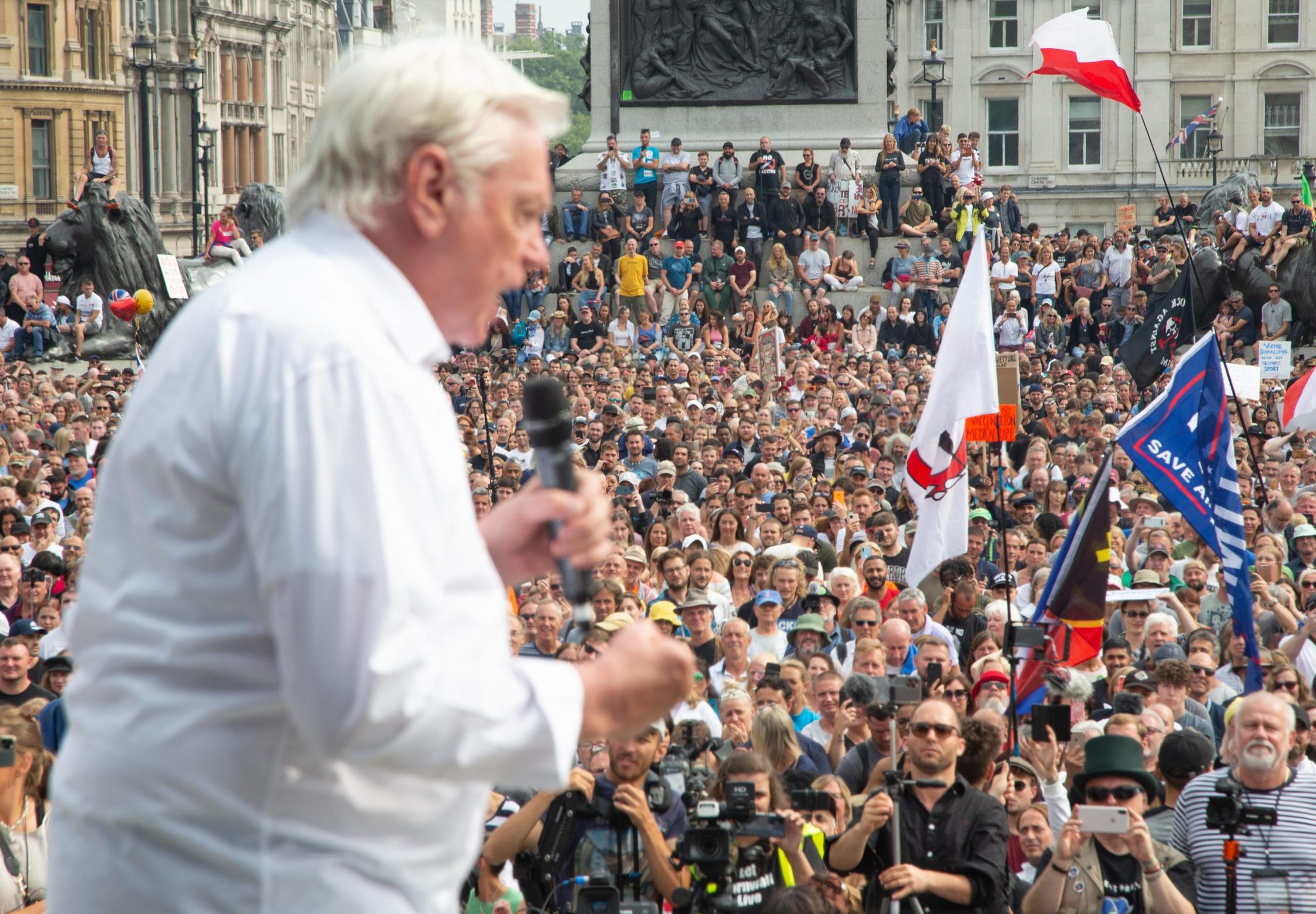When we think of conspiracy theories, we tend to think of people on the very fringes of society – shouting in parks about lizards, the Rothschilds, aliens, or some such. They represent particularly crazy beliefs that those of us in the mainstream would go nowhere near.
We might feel like things have changed for the worse recently, with the rise of the QAnon conspiracy, which holds that Donald Trump was fighting a secret Satanic child-abusing (and eating) ring led by the global elite, or with the current virulent Covid conspiratorial movement. But most of us would still regard that conspiracy is a minority pursuit.
The reality is quite different.
Consider the following list of conspiracies, and see if you agree with any of them:
- Humans have made contact with aliens and this fact has been deliberately hidden from the public
- The official account of the Nazi Holocaust is a lie and the number of Jews killed by the Nazis during World War II has been exaggerated on purpose
Even though we live in what’s called a democracy, a few people will always run things in this country anyway - The government is deliberately hiding the truth about how many immigrants really live in this country
- Muslim immigration to this country is part of a bigger plan to make Muslims a majority of this country’s population
- The truth about the harmful effects of vaccines is being deliberately hidden from the public
- The idea of man-made global warming is a hoax that was invented to deceive people
- Secret plots that harm the nation are more common in this country than in other countries
- The AIDS virus was created and spread around the world on purpose by a secret group or organisation
Regardless of who is officially in charge of governments and other organisations, there is a single group of people who secretly control events and rule the world together
If readers of The New European are representative of the UK population as a whole – a pretty big “if”, but let’s suppose it for now – then more than half of the people who just read that list of conspiracies will have agreed with at least one of them.

The statements come from a research project by YouGov and the University of Cambridge into belief in conspiracy theories, and found 60% of people believed at least one of the above conspiracies. Conspiratorial thinking is not, in reality, a fringe occupation – if you don’t believe any conspiracy theories, you’re in the minority.
This is not a phenomenon confined to the UK – the years-long project has worked across 19 countries and the UK is one of the least conspiracy-minded of all of them. The reality of our world is that conspiracy theories are mainstream, and sceptical disbelief in all of them is the fringe belief.
Adjusting to a world in which this is true requires a few somewhat uncomfortable shifts in our thinking. One of those is to recognise that conspiratorial thinking isn’t something that other people who aren’t like us do – the chances are that you engage in it at least sometimes, and the odds are infinitesimally small that no-one in your social circle believes a conspiracy theory.
If we want to tackle that kind of thinking, which can corrode trust, entrench partisan division and risks leading us down the rabbit hole to become a full-on conspiracy theorist with a ruined social and perhaps professional life, that means we need to start quite close to home.
We are, after all, going to be unlikely to convince a Leaver with a conspiratorial mindset that their beliefs are based on conspiracy theory given the gulf in politics and framing between us. But we might be able to convince ourselves, our family, or our friends to challenge how we think.
Spotting our own conspiracies is difficult, though. A good start is generally trying to use some basic rules of thumb to test things that we believe. One of these is to ask “how many people would need to be in on this?”. Almost no-one in public life can keep a secret – think of all the government scandals that leak out after mere weeks or months. If a conspiracy requires more than about 100 people to keep a secret…it’s probably not true.
A second useful question to ask yourself is “if this is true, why wouldn’t the mainstream media report it?”. Some people of course think the mainstream media cover everything up – but that forgets all the stories the media has reported.
This ranges from the Telegraph covering MPs’ expenses, the Guardian publishing the WikiLeaks and Snowden documents, the ICIJ consortium publishing banking records of the world’s elite for almost a decade, right the way to the Sun publishing footage of Hancock’s affair and even The New European publishing that infamous photo of Nigel Farage grinning next to a plunging stock ticker on the night of the Brexit referendum.
Journalists want scoops – it’s how we get our glory. The media has reported on government extradition flights and torture, illegal corporate activity, and more. If you believe a story that isn’t appearing in the mainstream, it’s worth asking yourself why is this story uniquely different – is it just simply not true?
A third and final useful quick safeguard is to ask yourself what evidence there is for the claim you believe – not in the sense of trying to corroborate it, as this will lead you to confirmation bias, but rather to try to knock down your belief.
This is easier with small beliefs than big ones. One recent example is that more than 60% of Brits believe their smartphone is listening to them even when it’s not on calls – largely believing that this is used to target them with adverts, particularly on Facebook.
Many people can cite a particularly uncanny situation where they discussed something unusual only for a Facebook advert to appear just hours later – surely proof they’re listening in?

The little-believed reality is that they aren’t – if for no other reason than they don’t really need to, not least because the return on the computing power needed wouldn’t be worth the minor increase in their already well-targeted ads.
But we are not taking Facebook or Apple’s word for it – independent researchers have scoured the code and capabilities of both to regularly check for such misbehaviour, which would be a huge story if confirmed. The reason the story hasn’t been written is that it doesn’t happen. But few of us believe that.
If we can let our minds be changed on something relatively trivial like that, we can get better at keeping our thinking flexible on bigger issues that might challenge our core beliefs.
Many of us on the Remain side still think Cambridge Analytica worked to win Brexit for Vote Leave. The reality is years of reporting and multiple official inquiries have found no evidence they worked on it at all. Just because Cambridge Analytica was a terribly behaved company that deserved to be brought down doesn’t stop that particular belief being a conspiratorial one.

Conspiracy theories are both a symptom of and a driver of a crisis of trust in our politics – and because they serve to create alternative worlds of truth, they make real debate all but impossible.
We are right to challenge them, but doing that relies on us acknowledging that fixing it has to start with us.



